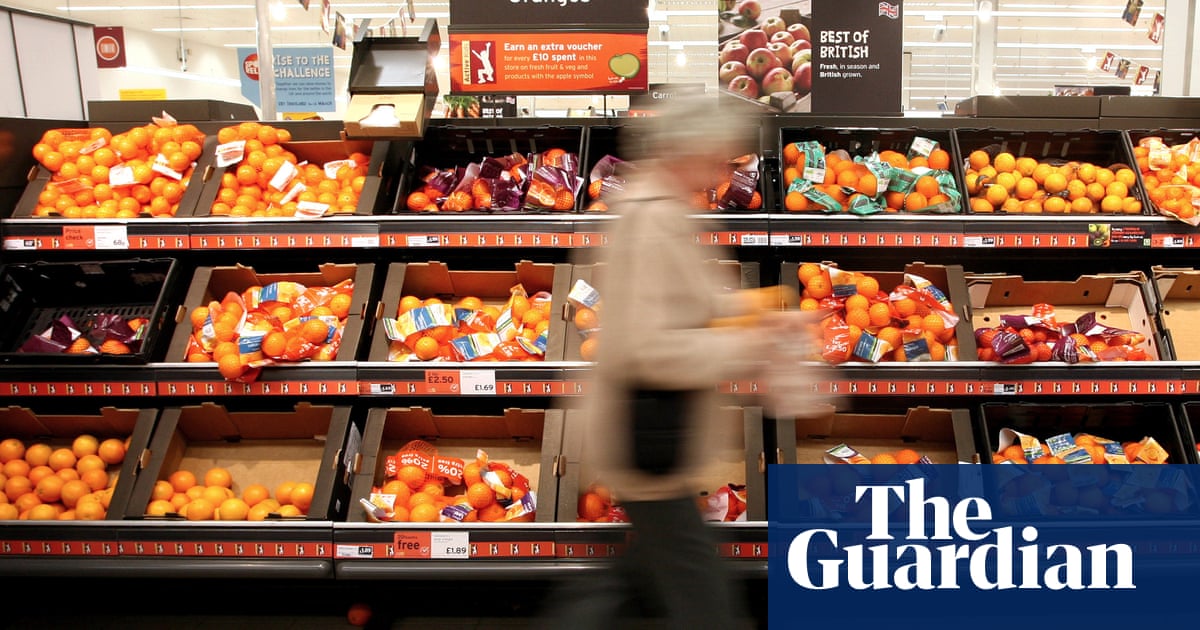Food sales at Sainsbury’s have been boosted by a return to the office and fewer people dining out in restaurants, as the retailer warned of possible price rises as a result of having to pay £140m more next year in national insurance contributions [NICs].
The supermarket chain’s pre-tax profits were £356m for the six months to mid-September, up 4.7% on the same period last year, driven by a 5% increase in sales in its grocery business.
However, its chief executive, Simon Roberts, said prices were likely to increase after the rise in NICs in last week’s budget.
Sainsbury’s said grocery sales were benefiting from changes in customer behaviour, as the return of consumers to the office had led to more people carrying out one large shop each week rather than more frequent visits with smaller purchases.
Roberts said: “There is a big return to the big weekly shop, and we’re winning those big weekly shops just at a time that more and more people are going back to the office more days a week and going back to that weekly shop.”
The supermarket chain has also benefited from shoppers opting to dine in for special occasions, rather than going out to restaurants.
“Another key trend we’re seeing is customers continuing to choose to eat more at home, as eating out has become more expensive, and they’re recognising more and more the restaurant quality of our Taste the Difference ranges,” Roberts said.
In the first half of the year, Sainsbury’s recorded an 18% increase in sales of its Taste the Difference range compared with the same period a year earlier.
Despite the increased sales in the grocery business, Argos faced a “tough first quarter”, with sales down 5% on the same period last year.
Roberts said the decision by the chancellor, Rachel Reeves, to increase employers’ NICs by 1.2% to 15% from April would lead to price inflation.
“This industry operates on very low margins, and there just isn’t the capacity in the structure of the way the supermarket industry works to absorb these level of costs without some impacts on inflation.
“I think given the speed these costs are coming at, they will be inflationary. We’ll do everything we can to mitigate that impact but there will be inflationary impacts, because our costs are going up.”
On Wednesday, Marks & Spencer reported that it could face £60m in extra costs from the NIC rise, and that the long-term impact of the budget policies on suppliers and customers was uncertain.
Roberts was critical of the government’s decision not to take action on business rates in the budget, despite it being included in its manifesto.
Sainsbury’s pays more than £500m in business rates each year, with 80% of its stores valued above the £500,000 threshold at which the levy kicks in.
“I think [changes to business rates] was a clear expectation that we saw in the manifesto, and we would strongly urge government to move more quickly on the reform of business rates for all retail stores,” Roberts said.
“In fact, now on the outcome of last week, business rates next year will actually go up for us.”
In the budget Reeves also put forward plans to remove the agricultural property relief inheritance tax exemption from farms worth more than £1m. The decision has sparked fury in the farming community, with the National Farmers’ Union planning a major protest later this month in London to urge that the policy be reversed.
Roberts called on the government to listen to the concerns of farmers, particularly as they faced increased production and labour costs, saying: “Given the concerns that farmers are raising, and the critical role they play in our country, I really urge the government to listen to them and try to find a solution.”
Sainsbury’s shares fell by nearly 2% in early trading on Thursday.

